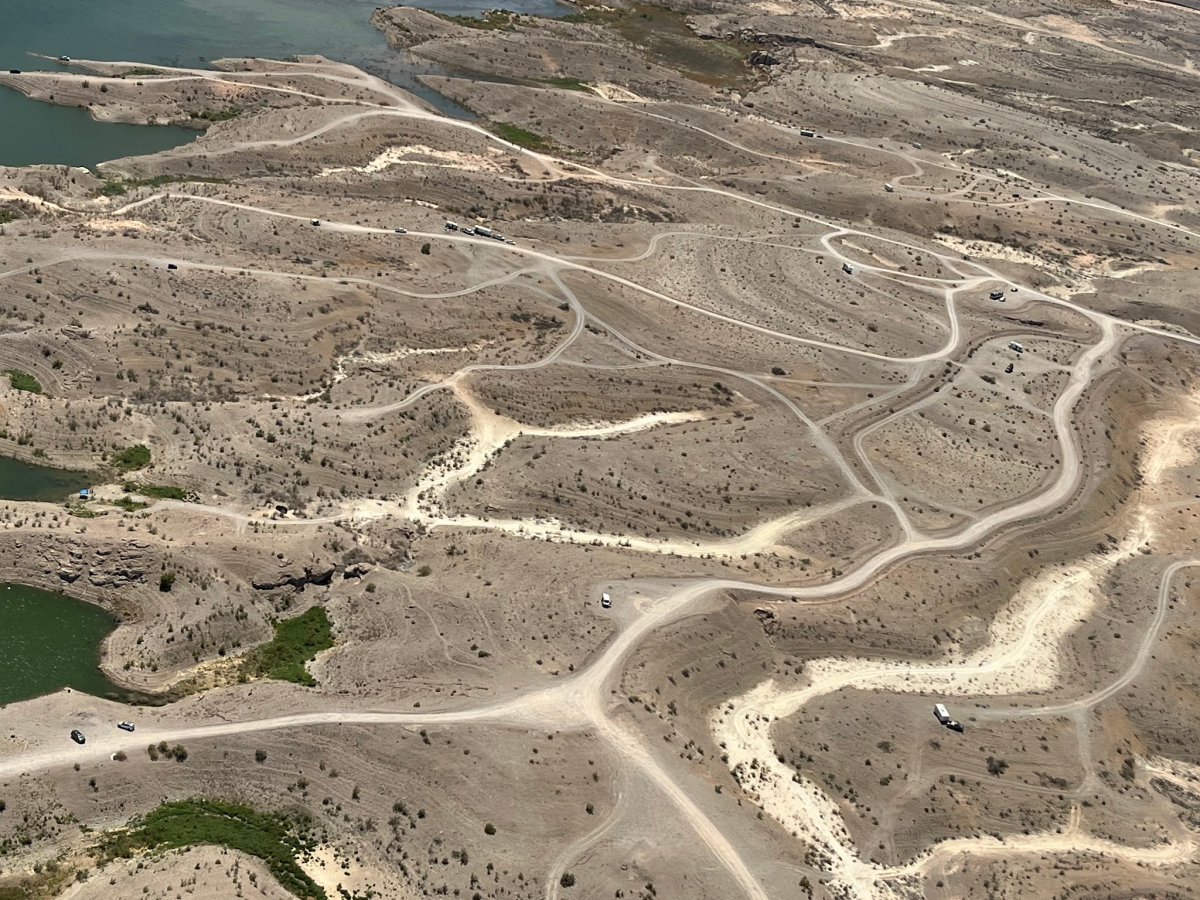The National Park Service has announced an $8.66 million, five-year project to address the surge of illegal roads and off-road vehicle trails at the Lake Mead National Recreation Area (NRA).
Lake Mead NRA has seen a significant increase in unauthorized roads and trails in recent years as visitors attempt to access the receding shoreline. Previous surveys documented 824 miles of illegal roads, but park officials estimate the current total is more than double that amount.
The multiyear project will assess the impacts of these illegal roads on the area's sensitive natural and cultural resources, particularly in the Government Wash and Overton Arm regions.
Park officials will also engage with local communities to understand their interest in recreation and education opportunities in these popular areas.
"This will be a heavily partnership and community-oriented project," park superintendent Mike Gauthier said in a statement. "We look forward to working closely with the public, tribes, and conservation-focused partners to help protect cultural and natural resources in these key park locations."
Newsweek contacted the National Park Service via its website for further updates on the program.
The project comes as the park has already taken action to restrict vehicle access and overnight camping in the Government Wash area. On August 1, the park blocked the main access roads into the area, citing unacceptable levels of resource damage and crime and strain on park staffing.

"In the past five years, there have been 1,365 incidents in that area alone, requiring park law enforcement or firefighting personnel response," Trouper Snow, a chief ranger, said in a statement at the time.
"The myriad of illegal roads and long-term encampments have created an unwelcoming environment for those who recreate throughout the Government Wash area," Snow said.
The closure will remain in place as the park assesses the damage and surveys the extent of the unauthorized roads. Park officials say public feedback will be crucial in developing management plans to mitigate the challenges while envisioning the future of recreation in these areas.
Illegal roads have become a growing problem across the Lake Mead NRA as the receding water levels expose more shoreline. Aerial photos have shown the scale of the problem, with countless roads now snaking across the landscape at Government Wash.
The unauthorized roads not only damage the environment but can also pose safety problems, hampering emergency access.

On Thursday, Lake Mead's water levels were at 1,061 feet—significantly higher than the historic lows of 2022 but still at the second-lowest height for the time of year in the past six years, according to the website Lakes Online.
"Together we will take the next steps for the park's future, working to elevate the beauty and recreation that makes Lake Mead special," Gauthier said.
Do you have a tip on a science story that Newsweek should be covering? Do you have a question about Lake Mead? Let us know via science@newsweek.com.




















 English (US) ·
English (US) ·